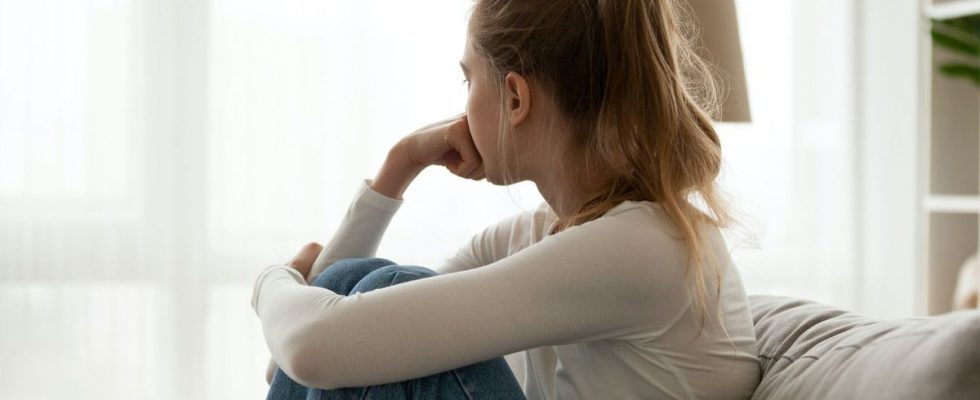Published on
Updated
Reading 3 mins.
in collaboration with
Dr Odile Bagot (Gynecologist-obstetrician)
According to a new Swedish study, women who have used combined birth control pills since adolescence have a greater risk of developing depression during their lifetime than women who do not use them. A fact that should not make us forget the advantages of this contraception.
Worldwide, it is estimated that more than 264 million people are affected by depression. At least 25% of women and 15% of men have depression that requires treatment at some point in their lives. Faced with this disease, the responsibility of the contraceptive pill has long been discussed, and many women turn away from this contraception because of the influence of the pill on their mood. Right or wrong ? A new study published on June 12 suggests that a link is indeed possible.
More depression reported among women who took the pill as teenagers
The Swedish study drew on data from over 250,000 UK Biobank women from birth to menopause, making it the largest study on the subject to date. The contraceptive method studied was the “combined” birth control pill, which contains progestogen, a compound resembling the hormone progesterone, and estrogen. (Progestin prevents ovulation and thickens cervical mucus to prevent sperm from entering the uterus, while estrogen thins the lining of the uterus to prevent implantation of a fertilized egg).
The researchers collected data on the women’s use of birth control pills, when they were first diagnosed with depression, and when they first experienced symptoms of depression without receiving a diagnosis. .
According to their analysis:
- Women who started using birth control pills as teenagers had a 130% higher incidence of symptoms of depression (than those who did not), while the corresponding increase among adult users was 92%. %;
- The researchers also found that the increased incidence of depression decreased when women continued to use birth control pills after the first two years;
- Teenage birth control pill users still had an increased incidence of depression even after stopping pill use, which was not seen in adult birth control pill users.
Other parameters may come into play
For researchers, the updated link is important even if it should not call everything into question:
“It is important to emphasize that most women tolerate external hormones well, without experiencing negative effects on their mood. In addition, birth control pills allow women to avoid unplanned pregnancies and can also prevent diseases that affect women, including ovarian cancer and uterine cancer. However, some women may have an increased risk of depression after starting to use birth control pills. The study results indicate that healthcare professionals need to be more aware of possible links between different body systems, such as depression and the use of birth control pills.” explains Therese Johansson from the Department of Immunology, Genetics and Pathology at Uppsala University.
A conclusion that cannot be completely put on the back of the pill to date for Dr. Odile Bagot, gynecologist and member of our committee of experts. Our expert questions the relevance of the study:
“What does indeed appear is that the increased risk of depression on the pill concerns adolescents and the first two years of taking it. But the real questions are: “Do they go into depression because they took the pill, or because their situation as a teenager was complicated (relationships, relationships, etc.)? Was there a hormonal climate present that made them more sensitive to hormones and promoted depression? We can’t say…”. Moreover, the study is not completely complete: “This is an observation but does not give the mechanism involved. Moreover, previous studies do not show such correlations” she concludes.
Researchers now intend to analyze other contraceptive methods such as mini-pills, contraceptive patches, hormonal spirals, vaginal rings or contraceptive sticks.
